This article provides a list of Bible verses that highlight the meaning and significance of Christmas.
Christmas is a time to reflect on the profound significance of Jesus Christ’s birth. These Bible verses illuminate the divine promise and fulfillment found in the nativity story, offering hope, joy, and purpose. Dive into these carefully selected scriptures to enrich your understanding and celebration of this sacred season.
Isaiah 9:6 – “For to Us a Child Is Born, to Us a Son Is Given, and the Government Will Be On His Shoulders. And He Will Be Called Wonderful Counselor, Mighty God, Everlasting Father, Prince of Peace.”
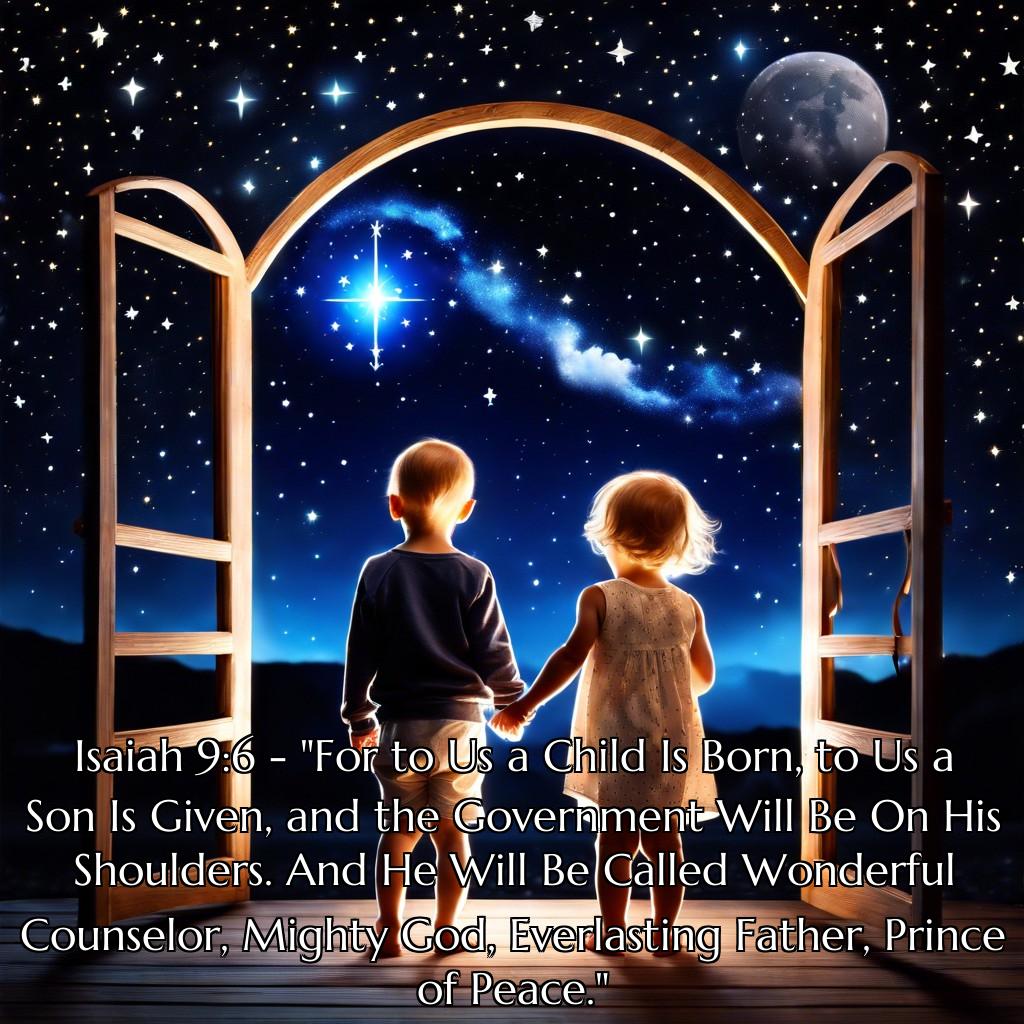
This verse speaks volumes about the significance of the birth of Jesus. Let’s break down the key concepts:
First, “to us a child is born, to us a son is given.” This emphasizes the personal nature of Christ’s coming – it is a gift to humanity.
The phrase “the government will be on his shoulders” points to Jesus’ future role as a ruler, carrying the weight of leadership with divine authority.
Jesus is called “Wonderful Counselor.” This means He offers divine wisdom and guidance, surpassing human understanding.
“Mighty God” affirms Jesus’ divine nature and omnipotence.
“Everlasting Father” reflects His eternal existence and caring, paternal role towards believers.
Lastly, “Prince of Peace” highlights His mission to bring reconciliation and peace to a troubled world. This multifaceted portrayal underscores the profound impact and purpose of Christ’s birth.
Matthew 1:21 – “She Will Give Birth to a Son, and You Are to Give Him the Name Jesus, Because He Will Save His People From Their Sins.”
This verse highlights the essence of the Christmas story—salvation. The name Jesus means “The Lord saves,” pointing directly to his mission on Earth.
Firstly, it signifies divine appointment. Mary and Joseph didn’t choose the name; God did, underscoring Jesus’ extraordinary purpose.
Secondly, it zooms in on the immediate objective: saving people from their sins. This encompasses everyone, emphasizing universal salvation.
Thirdly, the act of naming reinforces prophecy. Jesus’ birth and divine mission were foreseen, confirming God’s plan through the ages.
Finally, it’s about relational redemption. Jesus came to bridge the gap between humanity and God, restoring a broken relationship through love and grace.
Luke 2:10-11 – “But the Angel Said to Them, ‘Do Not Be Afraid. I Bring You Good News That Will Cause Great Joy for All the People. Today in the Town of David a Savior Has Been Born to You; He Is the Messiah, the Lord.'”
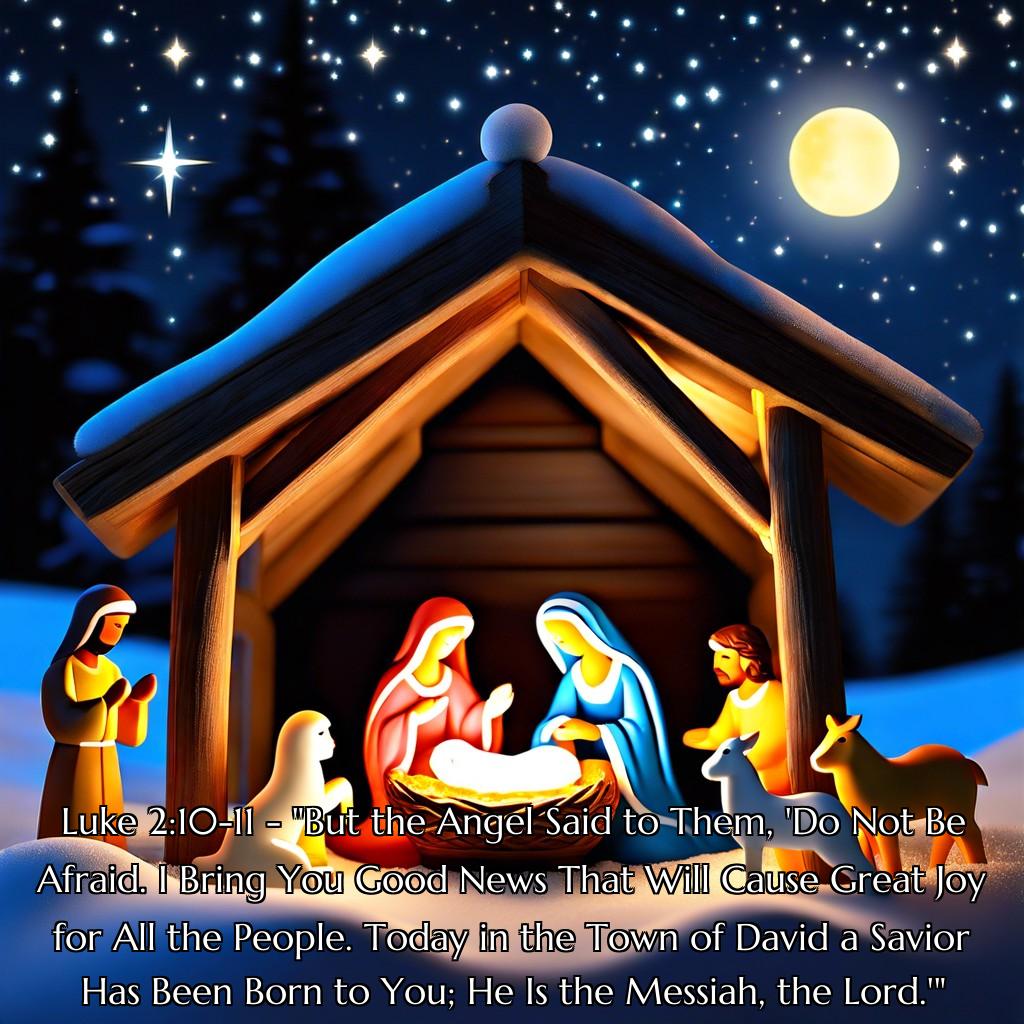
The announcement made by the angel to the shepherds is not merely a pronouncement; it’s a declaration of immense joy and hope. The key elements in these verses unravel the deep significance of Christmas.
The angel’s message dispels fear, emphasizing that the coming of Jesus is inherently joyous. This indicates the transformative power of Christ’s birth, bringing a shift from anxiety to joy.
The “good news” mentioned is universal. It transcends boundaries, cultures, and time, signifying that the birth of Jesus is a gift for all humanity, meant to bring salvation to everyone.
Calling Jesus the Savior and the Messiah highlights his dual role. As Savior, he rescues humanity from sin. As Messiah, he fulfills the prophecies and God’s promise of a redeemer.
The reference to the “town of David” connects Jesus to the lineage of King David, fulfilling the prophecy that the Messiah would come from David’s line. This reinforces Jesus’ legitimacy as the prophesied King and Savior.
Lastly, the explicit mention of his birth as a momentous event underscores its divine nature—celebrating God’s tangible intervention in human history through the birth of Jesus.
John 3:16 – “For God So Loved the World That He Gave His One and Only Son, That Whoever Believes in Him Shall Not Perish but Have Eternal Life.”
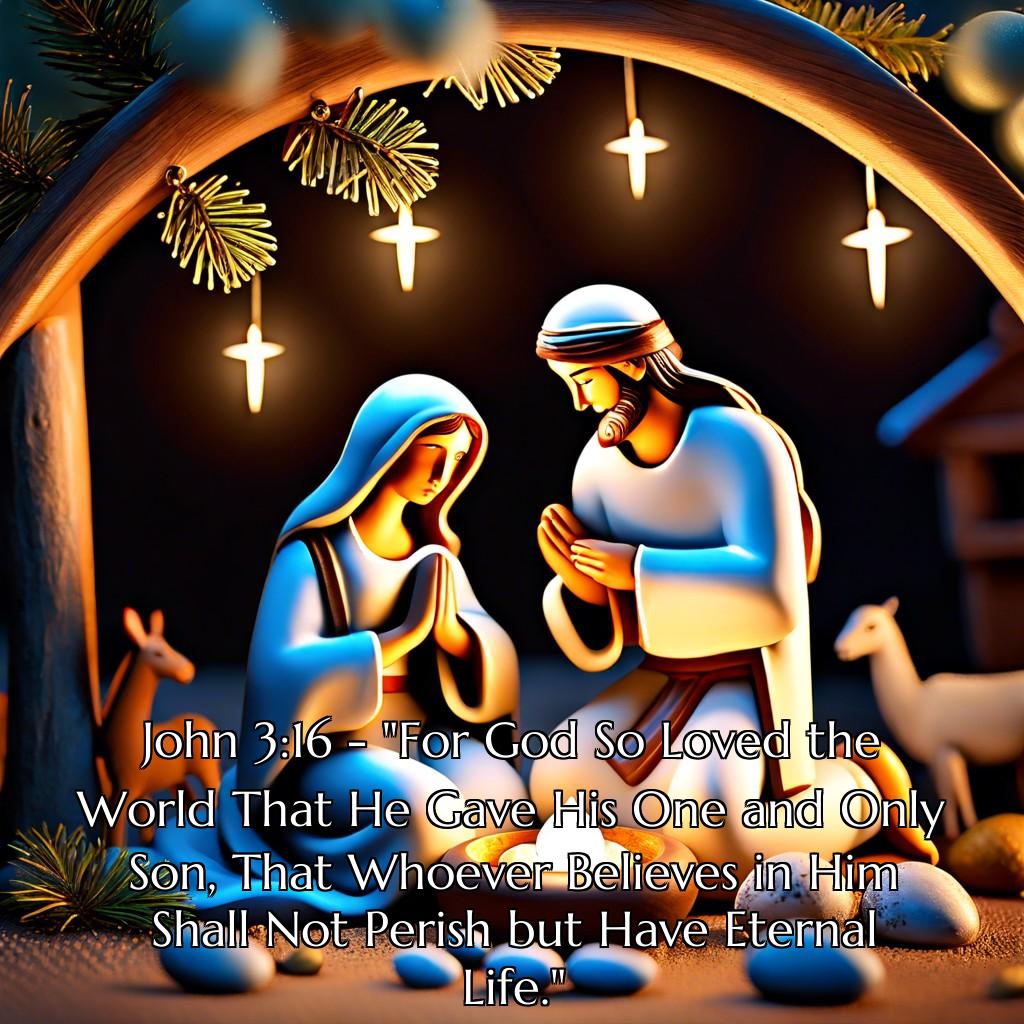
This verse captures the essence of Christmas. It illustrates the profound love God has for humanity by sending His only Son to save the world.
God’s love: This love is unconditional and inclusive. It’s offered freely to everyone, regardless of background or past mistakes.
The gift of Jesus: Jesus’ birth is central to the Christmas celebration. It’s a gift that signifies hope and redemption.
Belief and eternal life: The verse underscores the importance of faith. Believing in Jesus offers the promise of eternal life, a core tenet of Christian faith.
Christmas isn’t just about festivities; it’s about recognizing and embracing this divine love and gift.
Matthew 2:1-2 – “After Jesus Was Born in Bethlehem in Judea, During the Time of King Herod, Magi From the East Came to Jerusalem and Asked, ‘Where Is the One Who Has Been Born King of the Jews? We Saw His Star When It Rose and Have Come to Worship Him.'”
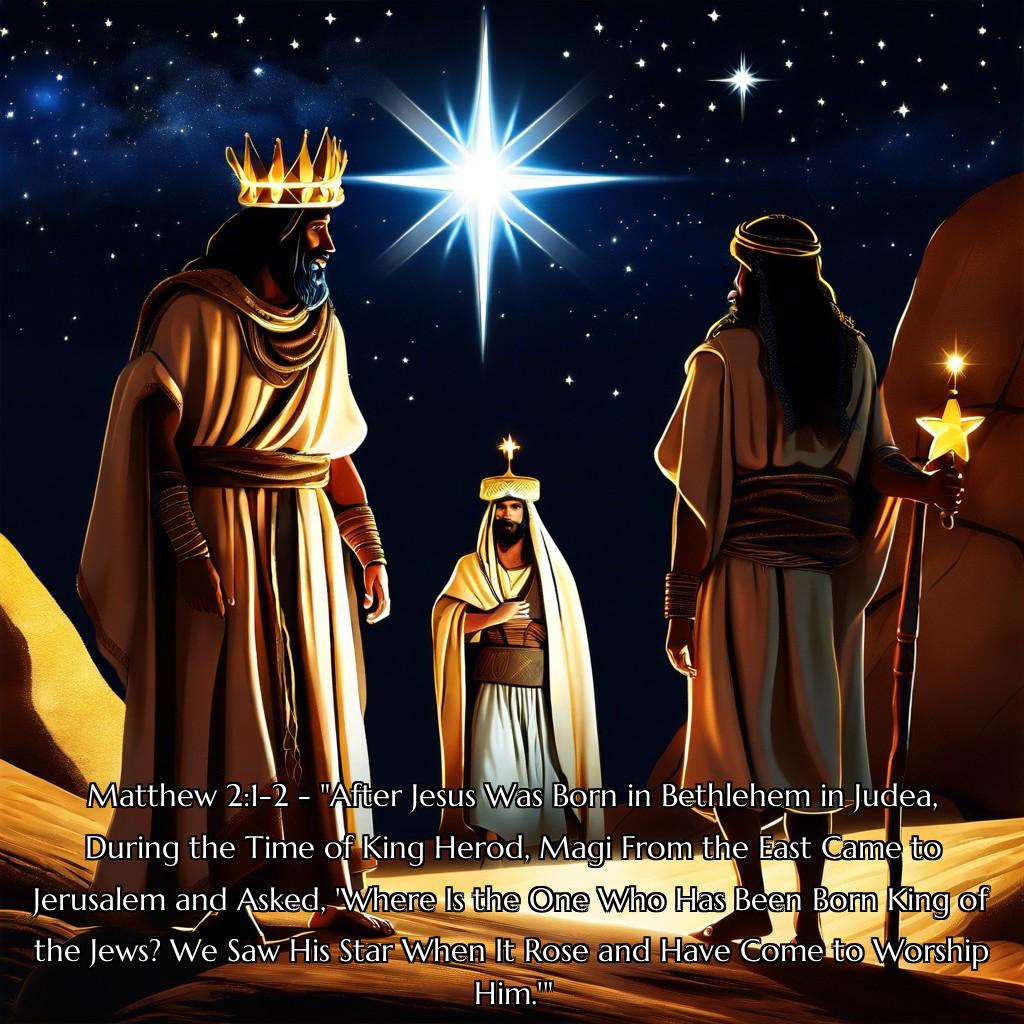
The visit of the Magi carries profound significance.
First, the Magi, or wise men, recognized Jesus’ kingship, even though they were from distant lands. Their journey symbolizes the universal acknowledgment of Christ.
Second, the star they followed represents divine guidance. It wasn’t just any star but a celestial sign pointing to the miraculous birth of the Savior.
Third, their act of worship upon finding Jesus highlights His divine nature. They brought gifts, indicating His importance and recognizing Him as worthy of honor.
This passage also underlines that Jesus’ impact reached far beyond Israel, drawing seekers from all nations. Their quest to find and worship the newborn King showcases the global and timeless longing for the Messiah.
John 1:14 – “The Word Became Flesh and Made His Dwelling Among Us. We Have Seen His Glory, the Glory of the One and Only Son, Who Came From the Father, Full of Grace and Truth.”

John 1:14 captures the profound mystery of Christmas: God’s incarnation. The verse emphasizes the Word, or Logos, becoming flesh. This is a cornerstone of Christian belief, reflecting how Jesus, fully divine, took on human form.
Key concepts to consider:
- The Word: Refers to Jesus as the divine communication of God.
- Made his dwelling: Indicates that Jesus lived among us, sharing in human experiences and struggles.
- Seen his glory: Highlights the visible manifestation of God’s presence in Jesus.
- Full of grace and truth: Expresses Jesus’ embodiment of God’s kindness and faithfulness.
These elements together showcase the essence of God’s love and closeness to humanity, marking the true spirit of Christmas.
Luke 2:14 – “Glory to God in the Highest Heaven, and On Earth Peace to Those On Whom His Favor Rests.”
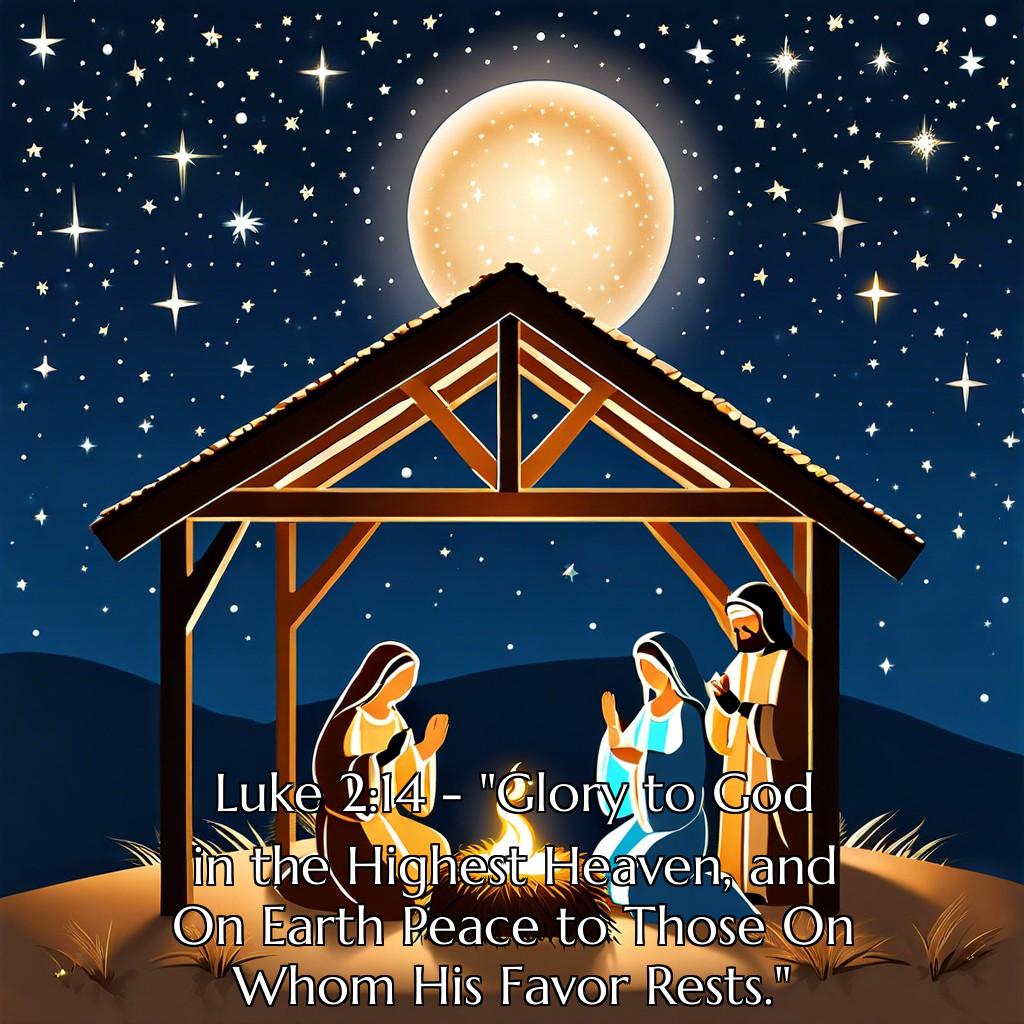
This verse captures the essence of Christmas, announcing profound joy and divine peace. It highlights several key concepts:
- Divine Praise: The angels sing glory to God, emphasizing worship and adoration of the Creator.
- Heavenly Peace: The peace mentioned is not just the absence of conflict, but a deep, spiritual calm granted by God.
- God’s Favor: This peace is given to those favored by God, implying a special relationship between God and His people.
In essence, this passage invites believers to celebrate, worship, and experience the unique peace that comes from divine favor. It encapsulates the joyous and spiritual significance of Christ’s birth.
Isaiah 7:14 – “Therefore the Lord Himself Will Give You a Sign: The Virgin Will Conceive and Give Birth to a Son, and Will Call Him Immanuel.”
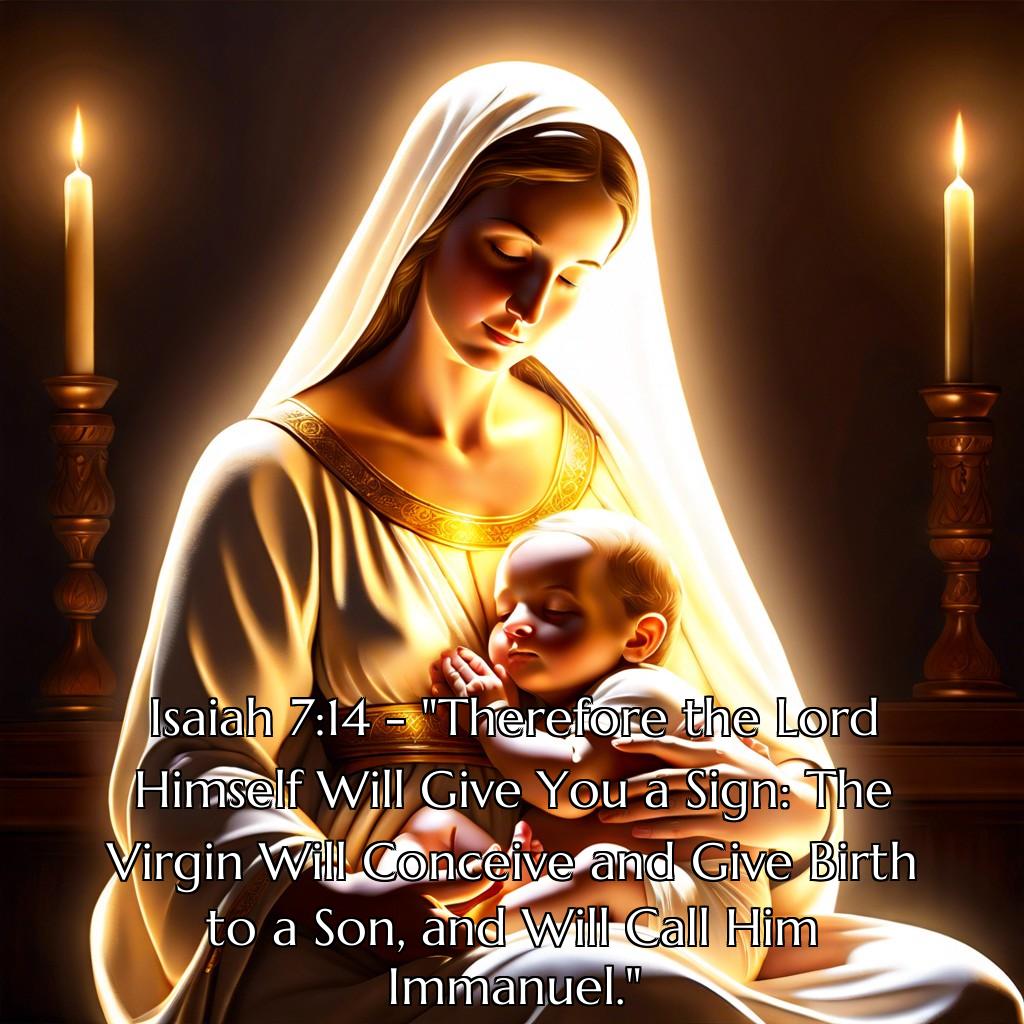
“Immanuel” means “God with us.” This verse assures the people that God will be present among them, providing comfort and hope. The prophecy highlights a miraculous birth, signifying divine intervention in human history.
It connects to the New Testament, where Jesus’ birth fulfills this prophecy. The mention of a virgin birth underscores the miraculous nature of Jesus’ arrival.
This verse emphasizes God’s promise and the fulfillment of that promise in Jesus’ birth, a cornerstone of the Christmas narrative. It points to the broader theme of God’s faithfulness and salvation.
Galatians 4:4-5 – “But When the Set Time Had Fully Come, God Sent His Son, Born of a Woman, Born Under the Law, to Redeem Those Under the Law, That We Might Receive Adoption to Sonship.”
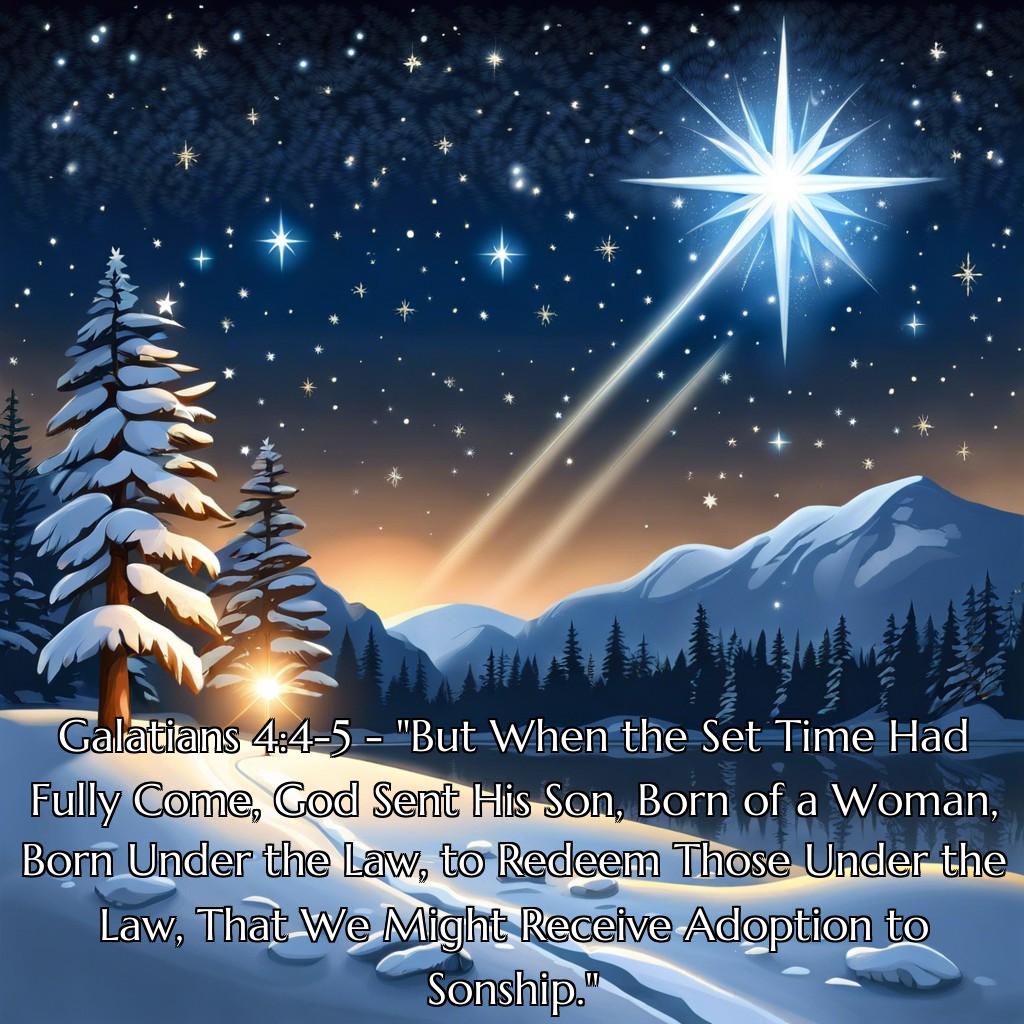
At the perfect moment in history, God orchestrated the arrival of His Son, born under Jewish law, to offer redemption. This timing emphasizes divine strategy rather than mere chance.
Key elements include:
- Divine Timing: The “set time” underscores that God operates according to His perfect schedule, not human expectations.
- Human Birth: Jesus shares in our humanity, being born of a woman, making Him accessible and relatable.
- The Law: Born under the same law that governed humanity, Jesus fulfills and transcends it, bridging God and people.
- Redemption: Jesus’ purpose is to redeem those burdened by the law, setting them free from its constraints.
- Adoption: This redemption facilitates believers’ adoption into God’s family, affirming their identity as His children.
By understanding these points, the profound depth of Jesus’ birth and mission becomes clearer, enriching the Christmas narrative.
Micah 5:2 – “But You, Bethlehem Ephrathah, Though You Are Small Among the Clans of Judah, Out of You Will Come for Me One Who Will Be Ruler Over Israel, Whose Origins Are From of Old, From Ancient Times.”
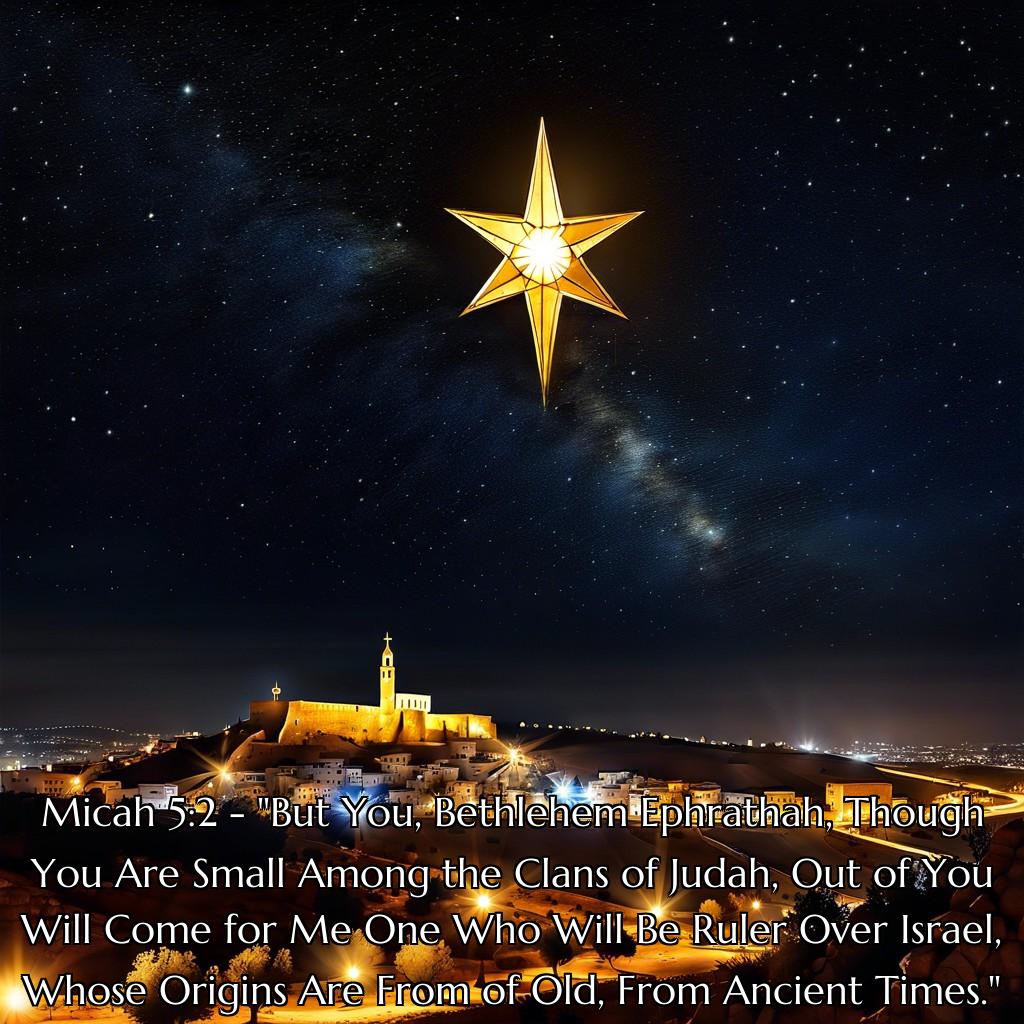
Micah 5:2 points to the significance of Bethlehem, a seemingly insignificant town, in God’s grand plan. This verse foretells the birth of a ruler from ancient origins, emphasizing the long-anticipated Messiah.
- Bethlehem, though small, is chosen for a monumental purpose.
- The prophecy highlights God’s pattern of using humble beginnings for great deeds.
- The ruler’s origins “from ancient times” underline Jesus’ divine nature and eternal existence.
- This verse connects Old Testament prophecies with the New Testament fulfillment in Jesus’ birth.
It’s an inspiring reminder that God often works through unexpected and humble sources to fulfill His promises.





